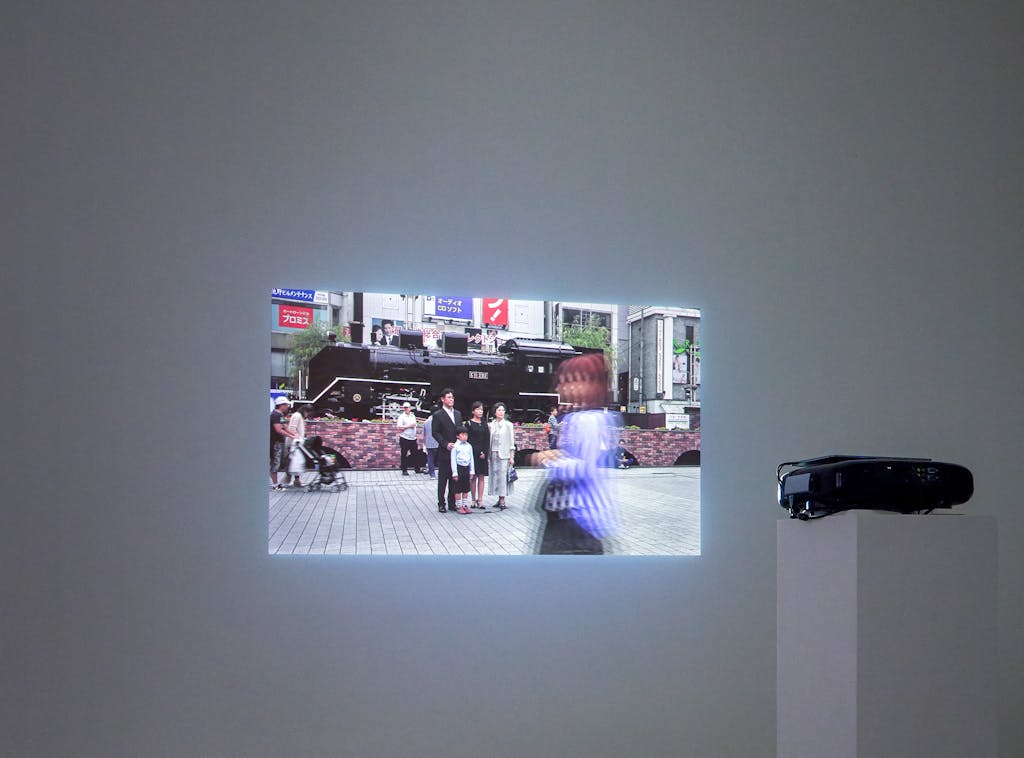In the Constructed Family Portraits (since 2013), several people arrange themselves in front of the camera to form a group portrait. Some positions are obviously set, others are being varied. The portrait is mostly like a classic family portrait: it is an older couple, a husband and wife, as well as others from the next generation.
Any similarities would be merely coincidental: the people depicted are not known to each other or even related; the artist recruited them through adverts. The shots were staged in public spaces, as if on a stage equipped with extras.
It is clear from the performers’ actions that they are endeavouring to adapt to the required situation. The participants are clearly aware of how they have to present themselves according to the paradigms, hierarchies and conventions that underlie the public image of a family, what they are supposed to show and what they are supposed to hide.
Staging as a business model is the subject of the documentary film Skin Hunger (2020). Jamie Diamond researched the background of a service industry that offers cuddling, i.e. exchanges hugs and caresses with paying customers according to predetermined rules and boundaries. In interviews, Diamond presents different perspectives on this non-sexual service.
The lack of physical contact, which, according to this film, was widespread even before, but especially during the pandemic, has encouraged such commercial offers. For her project, the artist herself actively participated in cuddling community encounters in order to approach an artistic and content-based approach to the topic of personal and economic ways of dealing with loneliness.
The film provides a moving insight into a family and business environment in which people deal with loneliness. Beyond mere physicality, there is the promise of emotional connections and even therapeutic approaches that fall on fertile ground and yet remain beyond or at least on the fringes of social acceptance.
